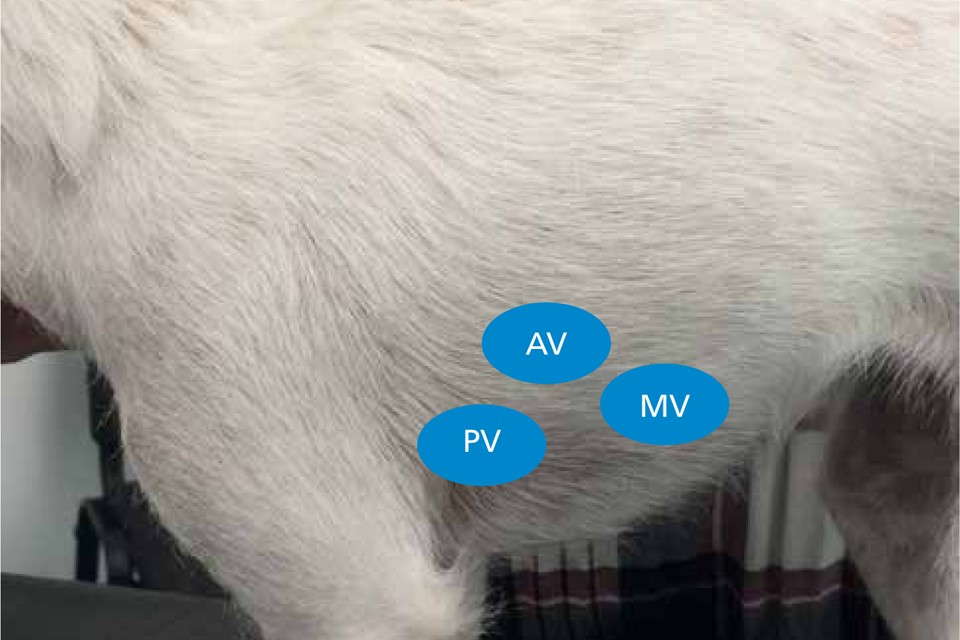Understanding Heart Murmur in Dogs: Causes, Symptoms, and Care
Heart murmurs in dogs can be a concerning discovery for pet owners. You want the best for your furry friend, and understanding heart murmurs is a crucial part of ensuring their well-being. In this comprehensive guide, we’ll delve into the world of heart murmurs in dogs. We’ll explain what they are, their potential causes, and the signs and symptoms to watch for. Moreover, we’ll provide valuable insights into the diagnosis, grading, and treatment of heart murmurs in dogs. By the end of this article, you’ll be better equipped to navigate your dog’s heart health journey and provide the care they deserve.
What is a Heart Murmur in Dogs?
A heart murmur, in simple terms, is an abnormal sound heard during a dog’s heartbeat. It’s often described as a whooshing or swishing noise. This noise can be soft or loud and may vary in intensity. Think of it as a gentle alarm bell that something might be amiss in your dog’s heart.

Heart murmurs are classified into different grades based on their loudness and characteristics, with Grade I being the softest and Grade VI the loudest. While the presence of a heart murmur can be unsettling, it’s important to remember that not all heart murmurs signify a serious health issue. In fact, some murmurs are innocent and benign, while others may indicate an underlying heart condition.
Causes and Risk Factors
Understanding what causes heart murmurs in dogs is the first step in comprehending your pet’s condition. Heart murmurs can be attributed to a variety of factors, including:
Valvular Disease:
One of the leading causes of heart murmurs in dogs is valvular disease. This occurs when the valves within the heart do not function properly, leading to abnormal blood flow and the production of murmurs.
Congenital Heart Defects:
Some dogs are born with congenital heart defects, which can result in heart murmurs. These defects may involve structural abnormalities within the heart.
Infections:
Infections of the heart’s lining, known as endocarditis, can lead to murmurs. Bacterial infections are often associated with this condition.
Age and Breed:
Certain dog breeds are more predisposed to heart murmurs, and they may develop with age. Small breed dogs, such as Chihuahuas and Cavalier King Charles Spaniels, are often more susceptible.
Other Health Conditions:
Underlying health issues, such as anemia or hyperthyroidism, can contribute to the development of heart murmurs in dogs.
Signs and Symptoms
Recognizing the signs and symptoms of a heart murmur in your dog is essential for early detection and intervention. Some common indications include:
Coughing:
Persistent coughing, especially at night or after exercise, can be a sign of a heart murmur.
Labored Breathing:
If your dog is struggling to catch their breath or shows rapid, shallow breathing, it could be related to their heart health.
Fatigue and Weakness:
A dog with a heart murmur may become easily fatigued during walks or playtime, and they may display weakness.
Changes in Appetite:
A decreased appetite or reluctance to eat can be linked to heart issues.
Restlessness:
Restlessness, particularly at night, can be indicative of discomfort related to a heart murmur.
Swelling:
Some dogs with heart murmurs develop abdominal or leg swelling due to fluid retention.
Fainting:
In severe cases, a dog may faint or collapse, which is a critical sign requiring immediate attention.
Diagnosis and Assessment
If you suspect your dog may have a heart murmur or if your veterinarian detects one during a routine check-up, further diagnosis and assessment are essential. The following steps are typically involved:
Auscultation:
Your veterinarian will use a stethoscope to listen to your dog’s heart sounds. This initial assessment helps determine the presence and intensity of the murmur.
Imaging Tests:
To assess the heart’s structure and function, your vet may recommend imaging tests such as echocardiography (ultrasound) and X-rays.
Blood Tests:
Blood tests can provide valuable information about your dog’s overall health and may identify underlying conditions contributing to the murmur.
Grading the Murmur:
Heart murmurs are graded on a scale from I to VI, with higher grades indicating a louder and potentially more serious murmur.
Identifying the Cause:
Determining the underlying cause of the murmur is crucial for tailoring treatment and management.
Grading and Severity
Understanding the grading system for heart murmurs is essential as it provides insights into the severity of the condition and potential implications. Here’s a breakdown of the grading scale:
Grade I:
A Grade I murmur is the softest and is often challenging to detect. It may not be associated with any clinical signs or symptoms.
Grade II:
Grade II murmurs are faint but can be heard with a stethoscope. They are typically benign and may not require immediate intervention.
Grade III:
These murmurs are moderately loud and audible without difficulty. While they may not always indicate a serious issue, further evaluation is necessary.
Grade IV:
Grade IV murmurs are loud and associated with an increased risk of underlying heart disease. Veterinary consultation and diagnostic tests are crucial.
Grade V:
A Grade V murmur is very loud and usually signifies a significant heart problem that requires prompt attention.
Grade VI:
This is the loudest grade, indicating a severe heart condition that demands immediate intervention.
Types of Heart Murmurs
Heart murmurs in dogs can vary not only in intensity but also in their characteristics and underlying causes. The two primary types of heart murmurs are:
Systolic Murmurs:
Systolic murmurs occur during the heart’s contraction phase (systole). They are the most common type and can result from conditions such as valvular disease or congenital defects.
Diastolic Murmurs:
Diastolic murmurs happen during the heart’s relaxation phase (diastole). They are less common and often indicate more severe issues like aortic insufficiency or restrictive cardiomyopathy.
Treatment Options
Upon diagnosis and assessment, your veterinarian will discuss treatment options based on the type and severity of the heart murmur. Common treatment approaches include:
Medications:
Medications like diuretics, ACE inhibitors, and beta-blockers can help manage symptoms and improve heart function.
Dietary Changes:
Specialized diets with reduced sodium content can benefit dogs with heart murmurs.
Lifestyle Adjustments:
Moderate exercise, weight management, and stress reduction are vital aspects of managing heart murmurs.
Regular Monitoring:
Routine check-ups and follow-up appointments are essential to track your dog’s progress and adjust the treatment plan as needed.
Surgery:
In severe cases or when an underlying condition requires surgical intervention, your veterinarian may recommend cardiac surgery.
Living with a Dog with a Heart Murmur
Caring for a dog with a heart murmur involves more than medical treatment. Here are some practical tips for ensuring your furry friend’s well-being:
Medication Adherence:
Administer prescribed medications as directed by your veterinarian. Consistency is key for effective management.
Diet and Nutrition:
Consult your vet for dietary recommendations. A heart-healthy diet low in sodium can support your dog’s cardiovascular health.
Regular Exercise:
Moderate, low-impact exercise is beneficial. Avoid strenuous activities that could strain the heart.
Stress Management:
Minimize stressors in your dog’s environment. A calm and peaceful atmosphere contributes to overall well-being.
Weight Control: Maintain a healthy weight for your dog through portion control and regular exercise. Obesity can exacerbate heart issues.
Hydration:
Ensure your dog has access to fresh water at all times. Proper hydration is essential for circulation.
Monitoring:
Keep a record of any changes in your dog’s behavior or symptoms. Report them to your veterinarian during follow-up appointments.
frequently asked questions (FAQs) related to open heart surgery recovery
Q1: What is open heart surgery recovery?
A: Open heart surgery recovery refers to the period following a surgical procedure on the heart or its major blood vessels. It involves healing, rehabilitation, and the return to normal daily activities.
Q2: How long does open heart surgery recovery typically take?
A: The duration of recovery varies, but most patients spend about 6 to 8 weeks in the recovery phase. Full recovery may take several months to a year, depending on individual factors.
Q3: What can I expect during the immediate post-operative phase?
A: After surgery, patients are closely monitored in the intensive care unit (ICU). They may be on a ventilator to assist with breathing and receive medications to manage pain and prevent complications.
Q4: When can I resume normal daily activities, like driving or working?
A: The timeline for resuming normal activities varies by individual and the type of surgery. Typically, driving may be allowed after a few weeks, while returning to work may take longer, depending on physical and medical factors.
Q5: Are there dietary restrictions during open heart surgery recovery?
A: Yes, patients are usually advised to follow a heart-healthy diet. This may include restrictions on sodium and saturated fats to support cardiovascular health.
Q6: Is it normal to feel emotional during recovery?
A: Yes, it’s common to experience a range of emotions during recovery, including anxiety, depression, or stress. Seeking support from loved ones or counseling can help manage these feelings.
Q7: Can I resume exercise and physical activity after open heart surgery?
A: Yes, but it should be done gradually and under the guidance of healthcare professionals. Cardiac rehabilitation programs are often recommended to safely reintroduce physical activity.
Q8: What are signs of a possible infection at the surgical site?
A: Signs of infection can include increased redness, swelling, warmth, or discharge from the incision site. Fever may also indicate an infection and should be reported to healthcare providers.
Q9: How can I manage pain during open heart surgery recovery?
A: Pain management is a priority during recovery. Healthcare providers prescribe pain medications and techniques such as deep breathing exercises to alleviate discomfort.
Q10: What lifestyle changes are recommended after open heart surgery?
A: Lifestyle changes often include adopting a heart-healthy diet, engaging in regular exercise, quitting smoking, and managing stress. These changes can improve long-term heart health.
Conclusion
In conclusion, understanding and managing heart murmurs in dogs are essential aspects of responsible pet ownership. While the presence of a heart murmur can be worrisome, it’s crucial to remember that not all murmurs are indicative of severe heart problems. With early detection, appropriate veterinary care, and a supportive approach, many dogs with heart murmurs can lead happy and fulfilling lives.




